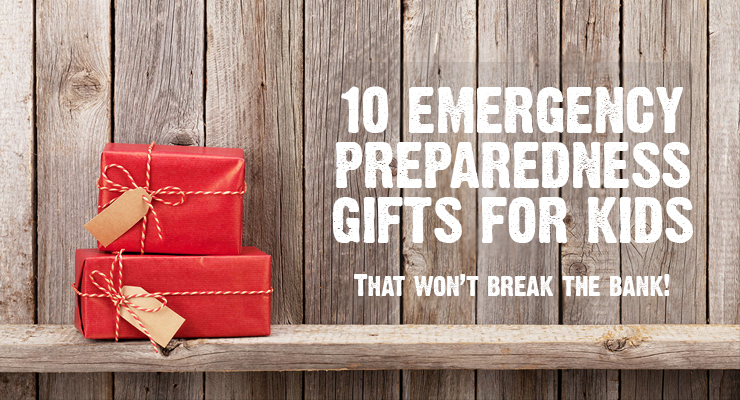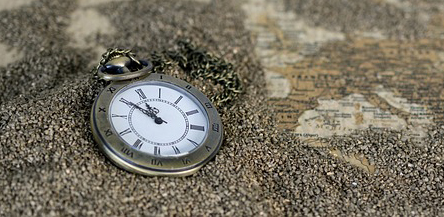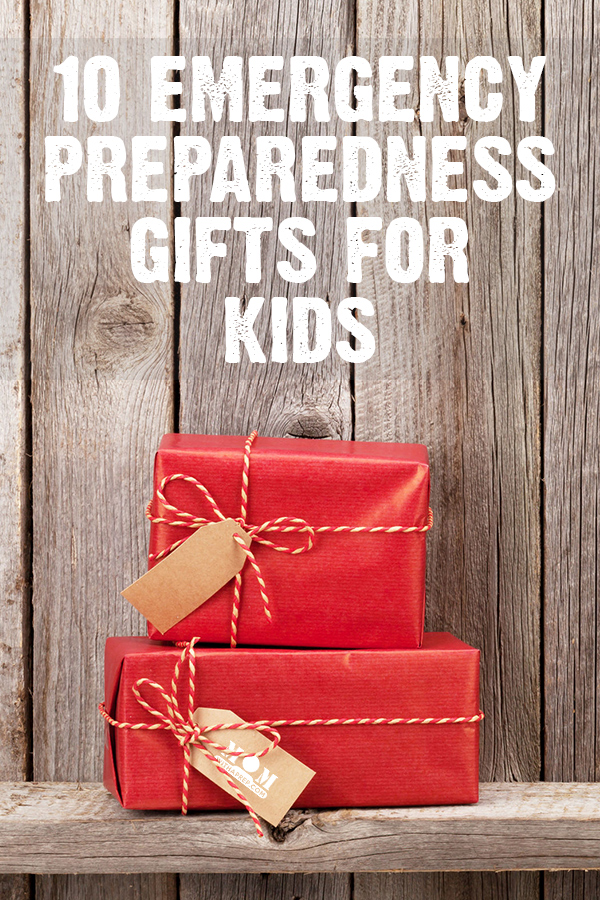Building an emergency kit for kids can be daunting, but here are some great emergency preparedness gift ideas for kids to spark an interest in emergency preparedness … without breaking the bank!

Do you ever wonder what you can give children to help engage them into the world of emergency preparedness? We’ve got ideas for all gift giving situations in this list of
21 Emergency Preparedness Gifts Ideas for Kids
1. Light
Whether you invest in lanterns, flashlights or headlamps, giving the gift of light is fun for all ages! We start out with little light kits for 3 year olds of fingertip lights and hanging lanterns, and build to larger as they grow. We love having our littles playing with flashlights and lanterns for pretend camping and personal security for bedtime.
Here are some other version of the gift of light you can give your kids:
- headlamps
- lanterns
- collapsible solar lights
- hand-crank flashlights
- personal flashlights
- flashlights for cars
2. Fire Starters
I know..I know…you might be rolling your eyes at this one thinking, “Does she even know the damage my little Johnny would do with one of these?”. Children who are taught proper fire starting techniques are less likely to be destructive than those who aren’t. Teach them the skills, help them create a fire starting kit, and add a basic survival element to their arsenal of knowledge.
3. First Aid Kits
A small first aid kit with basic pieces are great ways to introduce kids to personalizing their first aid. We all keep fun bandages in the cabinet for bumps and scrapes, but what about a kit that you make that also help with wrapping sprains or other basic first aid skills that all kids can know (and you should, too!)
4. Walkie Talkies
No products found.
Walkie Talkies are great items to get kids out learning about communication skills. You can go with some inexpensive sets that allow them to talk a few houses away, or invest in some family radio sets so that all the family can participate. Remember to always at least give in a set of two, so your child can let a friend borrow one for outdoor fun.
If you want to graduate up to something better as a child grows older, give them an inexpensive hand held ham radio and get your licenses together!
5. Multi-Tools / Pocket Knives
My husband grew up in an era when it was okay to still carry pocket knives everywhere. It’s harder now with zero tolerance rules at schools, but it’s still a good item for both boys and girls to have and be able to use – even if they don’t carry them as part of their everyday carry.
We give our kids their first multi-tool at around six years of age. We don’t spend a ton on it because our history has shown smaller kids need just a basic tool that can be ‘lost’ with out a great loss. They do graduate to a bigger multi-tool a few years later, or as their interest increases. At twelve, we give them a pocket knife. We’ve been lucky to give a knife from their grandfather to pass down. At 14 or so, we give a bigger utility knife for their emergency kit. Those ages are fluid, so be sure to judge the maturity level of your child.
6. Freeze Dried Snacks
We always include edible treats in our stockings: favorite candies and single serving processed foods that we rarely purchase (single serving mac’n’cheese and ramen). But as a treat, I also include things like freeze dried ice cream.
You can introduce your kids to the idea of eating these kinds of preparedness foods by including the ice cream, freeze dried fruit snacks, homemade dehydrated fruit leather or complete meals that they can have on their own. This way, if you ever need to use your 72 hour emergency kit, the preparedness foods you may have will not be completely alien to them.
7. Skills Kits
Knot-tying, morse code quiz cards, survival trivia games, crystal radios, and other small skills kits can be great ways to introduce basic survival / emergency / homestead skills to our kids. From the interest garnered by the games, you can then determine how you may want to invest in better tools as they get older.
8. Survival Books
Great books for reference are good starts to kids’ home libraries. But if your kids are more into fiction, there are a ton of books there, too! I remember Laura Ingalls Wilder’s Little House books were my first introduction to life without a grocery store and existing on the land.
You can get a bigger list here to choose from.
9. Camping/Hiking Tools
We did not grow up camping. We loved the idea of teaching our kids camping skills (which are great preparedness/survival skills to learn), and got early starts with small tents that we could do living room camping as well as backyard camping.
Fun tent kits like the one above are great for the wee people, then as they get older, begin investing in better equipment like:
10. Water Filter
Straws are fun to use for kids for all sorts of things, so you can introduce the idea of a ‘survival water straw’ as they get a little older. We have never had chocolate milk through ours, but we have used it a time or two when drinking water in the house, just to get used to using them. It’s a great introduction into a more survival based preparedness mindset, or just to use in an emergency kit.
11. Binoculars
I have to admit, I still love getting my binoculars out and just having a look around. Maybe it’s the snoop in me, maybe it’s the sense of adventure that I wonder what’s going on in other parts of the world and galaxy. You can use binoculars to watch wildlife, to teach security, to watch the skies for amazing wonders, and more!
12. Gift of Time

One of the best emergency preparedness gifts ideas for kids is our time. Taking them under our wings and helping them learn techniques, ideals, skills and philosophies creates memories for years to come. You’re investing in the life of your child for more than the time when you can be with them in person.
Teach them how to hunt, fish, sew, use their emergency kits, navigate the stars, identify edible foods, and more! It’s the best Christmas present they will receive!
Katy Willis is a writer, lifelong homesteader, and master herbalist, master gardener, and canine nutritionist. Katy is a preparedness expert and modern homesteader practicing everyday preparedness, sustainability, and a holistic lifestyle.
She knows how important it is to be prepared for whatever life throws at you, because you just never know what's coming. And preparedness helps you give your family the best chance to thrive in any situation.
Katy is passionate about living naturally, growing food, keeping livestock, foraging, and making and using herbal remedies. Katy is an experienced herbalist and a member of the CMA (Complementary Medical Association).
Her preparedness skills go beyond just being "ready", she's ready to survive the initial disaster, and thrive afterward, too. She grows 100% organic food on roughly 15 acres and raises goats, chickens, and ducks. She also lovingly tends her orchard, where she grows many different fruit trees. And, because she likes to know exactly what she's feeding her family, she's a seasoned from-scratch cook and gluten-free baker.
Katy teaches foraging and environmental education classes, too, including self-sufficient living, modern homesteading, seed saving, and organic vegetable gardening.
Katy helps others learn forgotten skills, including basic survival skills and self-reliance.
She's been published on sites such as MSN, Angi, Home Advisor, Family Handyman, Wealth of Geeks, Readers Digest, and more.
Last update on 2024-04-28 at 16:32 / Affiliate links / Images from Amazon Product Advertising API


![Gerber Bear Grylls Fire Starter [31-000699]](https://m.media-amazon.com/images/I/41VtShseEVL.jpg)









